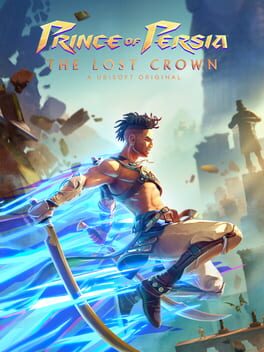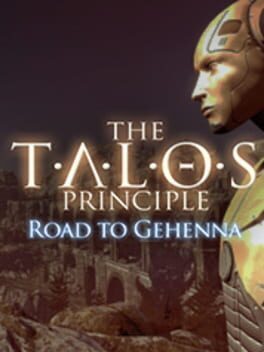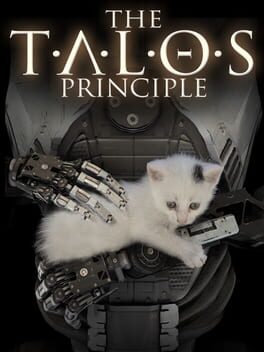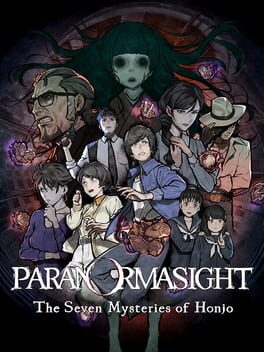smartfish13
2022
I am a fan of how this interweaves puzzle and action mechanics, even though there are a lot of puzzle fans (like my wife) who will excluded by this design. The early discoveries and insights that players get to make are phenomenal. I am someone who strived to get the good ending, purely because the game signposts you towards the more difficult secrets in subtle but excellent ways, but I do think there should be a more clear distinction between the "optional" extra hard puzzles, and the slightly simpler path toward the good ending. I ended up doing a lot of extra work, and even though I don't really regret how much extra time I spent on - this game got me to decode its language without online help, something I spent multiple enjoyable hours on even after receiving all the clues - I do wish I was given more of a choice in the matter.
Nothing about this game is really that groundbreaking, but a well-made Metroidvania is always a thing of beauty.
The platforming and puzzles are the highlight. The combat works well, but all of the potential upgrades can throw the balance out of whack (a problem as old as Symphony of the Night). The boss battles are still a lot of fun, especially because the animators are on the top of their game.
The story had a lot of promise at first, but didn't really deliver on that promise (the English voice acting doesn't do it any service). On launch, there are quite a few little bugs (UI issues and repeating cutscenes), but fortunately nothing that affected the tight platforming.
The platforming and puzzles are the highlight. The combat works well, but all of the potential upgrades can throw the balance out of whack (a problem as old as Symphony of the Night). The boss battles are still a lot of fun, especially because the animators are on the top of their game.
The story had a lot of promise at first, but didn't really deliver on that promise (the English voice acting doesn't do it any service). On launch, there are quite a few little bugs (UI issues and repeating cutscenes), but fortunately nothing that affected the tight platforming.
2023
I've only ever played 2 versions of RE4 - the original, on Game Cube, and this one. The miracle of the remake is that it's both entirely its own thing, and yet without going back, it's hard to notice the differences at all. It makes RE4 feel fresh and new again. Even though it's the urtext for the modern third person shooter, there's also nothing else like it.
The original flaws are there too. Just like the original, I think the campaign almost outstays its welcome. (I'm probably alone in this, but I've always felt that they should have gone with two shorter campaigns like the earlier Resident Evils, maybe split equally between Leon and Ada.)
Lastly, a note about the VR version. I'm a huge fan of RE7 on VR, and I waited until VR mode was released to play RE4. A couple short sessions convinced me they made a perfectly serviceable conversion, but it was never going to be the best way to play this game. RE4 was never about horror or jump scares, and while it feels good to aim and shoot in VR, it sidesteps everything that's really unique about RE4. Really too bad, since it only furthers the argument that PSVR2 isn't getting the support it deserves.
The original flaws are there too. Just like the original, I think the campaign almost outstays its welcome. (I'm probably alone in this, but I've always felt that they should have gone with two shorter campaigns like the earlier Resident Evils, maybe split equally between Leon and Ada.)
Lastly, a note about the VR version. I'm a huge fan of RE7 on VR, and I waited until VR mode was released to play RE4. A couple short sessions convinced me they made a perfectly serviceable conversion, but it was never going to be the best way to play this game. RE4 was never about horror or jump scares, and while it feels good to aim and shoot in VR, it sidesteps everything that's really unique about RE4. Really too bad, since it only furthers the argument that PSVR2 isn't getting the support it deserves.
(I played this on PS4, but that's not an option in Backloggd.)
Kudos to the designers for finding more interesting puzzles with the same mechanics as the main game, but I think a DLC of this size justifies having genuinely new mechanics, and (like the original game) there are more puzzles here than necessary. By the end, I felt less clever, and more annoyed at the amount of fiddle necessary. I also had no interest in getting any of the stars, given how hard many of them are just to locate, and so I was annoyed that the game seems to lock the best ending behind them.
That being said, the story being told in Gehenna is genuinely more interesting, and the core mechanics are well-designed enough (and still unique 6 years after the fact) that I mostly had a good time.
Kudos to the designers for finding more interesting puzzles with the same mechanics as the main game, but I think a DLC of this size justifies having genuinely new mechanics, and (like the original game) there are more puzzles here than necessary. By the end, I felt less clever, and more annoyed at the amount of fiddle necessary. I also had no interest in getting any of the stars, given how hard many of them are just to locate, and so I was annoyed that the game seems to lock the best ending behind them.
That being said, the story being told in Gehenna is genuinely more interesting, and the core mechanics are well-designed enough (and still unique 6 years after the fact) that I mostly had a good time.
2014
As a massive puzzle game fan, The Talos Principle has been recommended to me for years, and I've embarrassed that it's taken me this long (and a new sequel) to finally play it.
Unsurprisingly, I liked it! The puzzles are often extremely clever, and there are some mechanics (such as the Recorder) that are high-water marks for the genre. That said, I think there are MORE puzzles in this game than are necessary for these mechanics - after about 2/3, I felt like the game had led me to discover all of the necessary insights, and while there were still tough puzzles after that, they usually felt more fussy than fun to solve.
As far as the story goes, I wasn't annoyed by it like some people, but as far as reflections on philosophy in the form of a puzzle game go, the Witness would do a much better job of this two years later. Piecing together the story through the readings was enjoyable, and provided a nice break in between puzzles, but I wasn't strongly moved by where the story ended.
Unsurprisingly, I liked it! The puzzles are often extremely clever, and there are some mechanics (such as the Recorder) that are high-water marks for the genre. That said, I think there are MORE puzzles in this game than are necessary for these mechanics - after about 2/3, I felt like the game had led me to discover all of the necessary insights, and while there were still tough puzzles after that, they usually felt more fussy than fun to solve.
As far as the story goes, I wasn't annoyed by it like some people, but as far as reflections on philosophy in the form of a puzzle game go, the Witness would do a much better job of this two years later. Piecing together the story through the readings was enjoyable, and provided a nice break in between puzzles, but I wasn't strongly moved by where the story ended.
So many new ideas, including a whole franchise's worth of new monster types. The Wonder flower mechanic is enjoyable, but I think the badges are the real star of the show here. I thought the future in platforming was in hyper-challenging throwbacks like Celeste and Super Meat Boy, and I'm glad to be wrong.
More than the sum of its parts. I enjoyed Spiderman 2 the entire time I played it.
However no single element really sang to me. The story and characters are rich and detailed, but I'm tired of all things Marvel right now. The combat has a great flow, but the gameplay gets bogged down with mediocrity as in almost all open-world games (Elden Ring being the exception). I don't mind the fact that the game tries to shake things up with Mary Jane stealth sequences, and other minigames, but none of these are more than...serviceable.
Will this stop me from playing Spiderman 3 the moment it comes out? Probably not.
However no single element really sang to me. The story and characters are rich and detailed, but I'm tired of all things Marvel right now. The combat has a great flow, but the gameplay gets bogged down with mediocrity as in almost all open-world games (Elden Ring being the exception). I don't mind the fact that the game tries to shake things up with Mary Jane stealth sequences, and other minigames, but none of these are more than...serviceable.
Will this stop me from playing Spiderman 3 the moment it comes out? Probably not.
This is a great little visual novel to check out for spooky season. Fans of Zero Escape will enjoy this, but I think the closest analogue in the genre is 428: Shibuya Scramble, which also features separate characters sharing the same interweaving timeline, and - sort of hilariously - a tourist-attracting showcase of a single region of Tokyo.
Unlike that one, this is a horror game. I didn't find it especially scary, but everyone's mileage will vary. The real draw for me are the plot twists, and occasionally superb puzzles. The end-game reveal is phenomenal and shouldn't be spoiled. The game is short for a visual novel but the best I've played in the last few years. Highly recommended!
Unlike that one, this is a horror game. I didn't find it especially scary, but everyone's mileage will vary. The real draw for me are the plot twists, and occasionally superb puzzles. The end-game reveal is phenomenal and shouldn't be spoiled. The game is short for a visual novel but the best I've played in the last few years. Highly recommended!
2023








